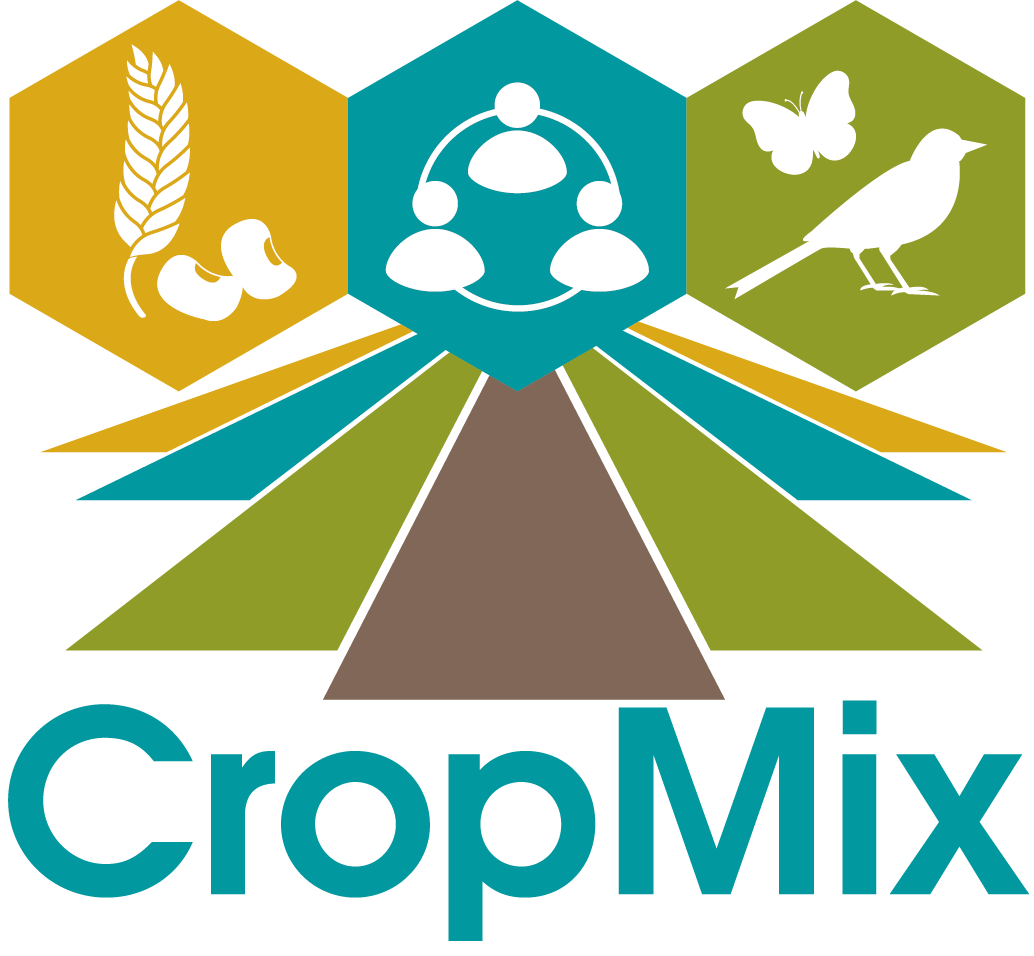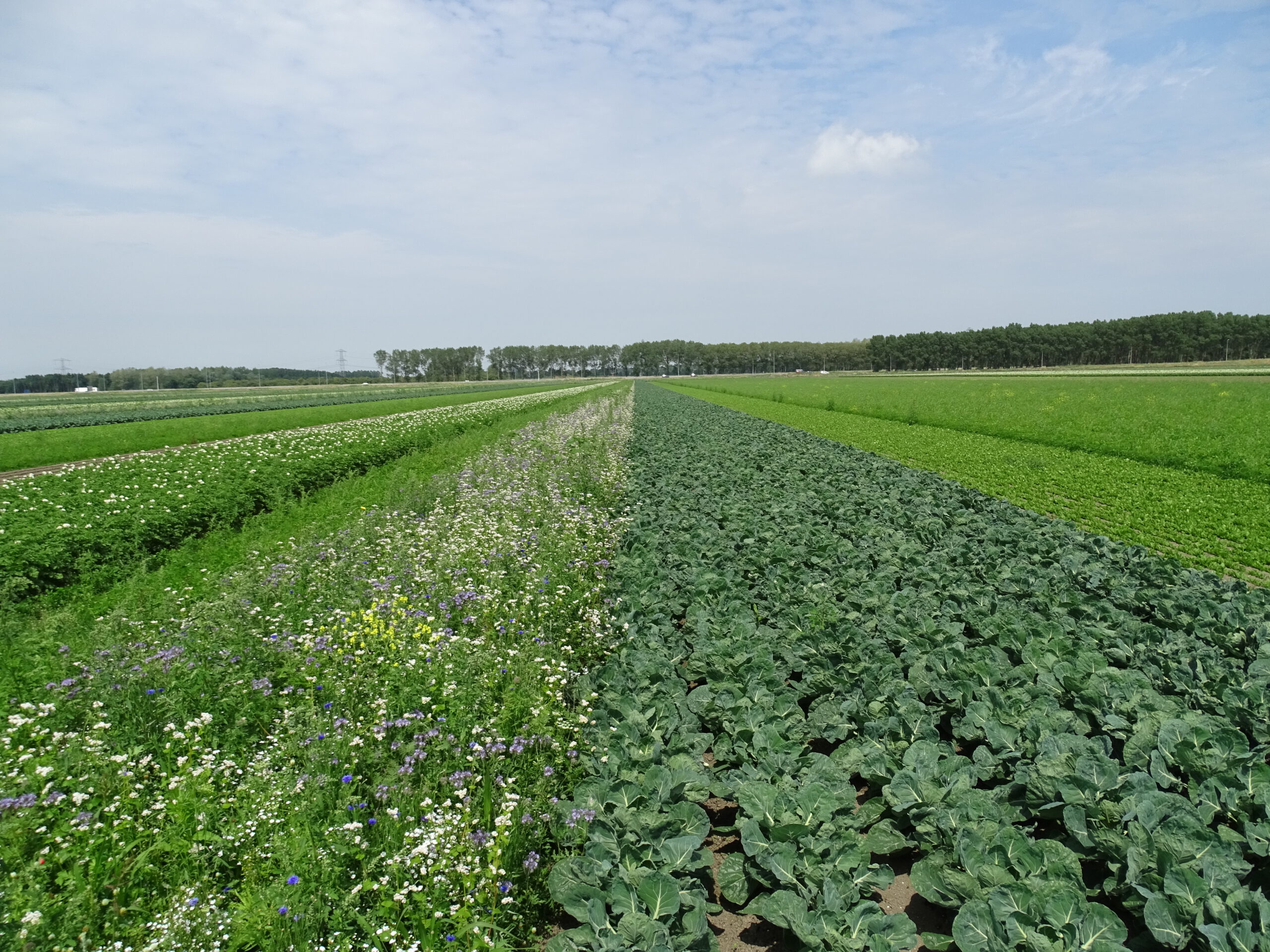Arable farmers, researchers and chain partners are joining forces to achieve a breakthrough in the transition to sustainable arable farming in the five-year research programme CropMix. The focus is on increasing crop diversity through strip cropping. By doing so, we want to bring ecology and arable farming together and drive the societal transition towards a more sustainable agricultural system.
Big challenges
The Dutch agricultural sector faces major challenges, including serious loss of biodiversity, waste of resources, dependence on environmentally unfriendly inputs (e.g. pesticides), public health risks from pesticide use and climate change. In addition, farmers' economic position is often fragile, while the general public wants both affordable food and a clean and biodiverse environment. Moreover, the EU is increasingly restricting the use of pesticides. All these issues require significant changes in agricultural practices and create an urgent need for a transition to more sustainable and environmentally friendly cropping systems.
Biodiversity and resilience
CropMix promotes the transition to more robust agro-food production ecosystems, in which biodiversity and resilience are the starting points. Sustainable arable farming is based on the ecological principle of (crop) diversity, but the transition to ecology-based agriculture requires changes in technology, knowledge, values and regulations in addition to changes in ecology. Therefore, in CropMix, researchers from various disciplines (ecology, economics, social sciences) work together with various chain partners, such as governments, crop protection organisations, breeders, nature organisations, banks, food chain partners, green education and other partners who play a role in helping to accelerate the transition in practice. Central to the research programme are 25 arable farms working on crop diversity using strip cropping.
Improving soil live and biodiversity
The allocation of 10 million euros from the National Science Agenda gives the interdisciplinary team the opportunity to develop new knowledge on the ecological principles that make cropping systems sustainably productive and which socio-economic and social factors hinder or enable the transition to farming systems with crop diversity. By promoting crop diversity, the programme aims to increase soil life and biodiversity in and around fields. At the same time, good earning models for farmers and healthy, affordable food for consumers are also important. By studying the entire chain, from soil life to consumers, the programme seeks workable and integral solutions that match the specific problems arable farmers face in practice.
Consortium partners and participants
Participating educational and research institutions: Wageningen University & Research (penvoerder), HAS Green Academy, Vrije Universiteit Amsterdam/Athena Instituut, Louis Bolk Instituut, Aeres University of Applied Sciences, TU Eindhoven, Rijksuniversiteit Groningen, Avans University of Applied Sciences.
Governments: Ministry of Agriculture (LNV), Province of Flevoland, Province of Gelderland, Province of Noord-Brabant.
Societal partners: Triodos Bank en Foundation, Agrifirm, Artemis, Plantum, Vitalis, Bejo Zaden, Farm Frites International BV, BASF, Koppert, Protix, Bakker Barendrecht, Bbrood, Vlinderstichting, Natuurmonumenten, Ravon, Task Force Korte Keten, Hippybees, CIV Groen, Albert Heijn, AVVN, Rabobank, Vogelbescherming, LTO.
Participating arable farmers: Boer en Buurt, Herenboeren Wilhelminapark, Hoeve Steenenis, Proeftuin Van Pallandtpolder, ERF B.V., Landgoed Zuylestein, Landgoed Velhorst, Zenderense Es, Janmiekeshoeve, Nieuw Udengast, EET-Wageningen, Flevo Landschap, Hof van Heden, Loverendale, Kloosterplaats, Hoalderkamp, De Watertuin, De Bijenhof, VOF Bos, Ekoto, Huiberts Biologische Bloembollen, De Dennenhoeve, Beleef het en Eet het, BI-JOVIRA, Zonnegoed.
CropMix started on 1 January 2023 and runs until the end of 2027. The programme is part of the National Science Agenda and is funded by NWO.


